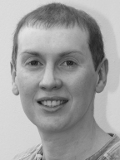Presentation: Tweet"LMAX Disruptor - 100K transactions per second at less than 1ms latency"
For world class performance on commodity hardware you need to take a holistic approach to software design. The good news is that all the stuff we learned in computer science 101 is what really matters, choose your data structures carefully, model your domain, understand your platform, work hard to have a clear separation of concerns, but as well as all of that, run your business logic on a single thread!?
This session cover the development of the LMAX "Disruptor" concurrency pattern. This pattern is a significant step forward for concurrency control of multi-stage processes over using existing queue-based techniques. It does this delivering significantly improved throughput at lower latencies, and is now an open source project.
This session will describe some of the challenges faced developing the World's fastest financial exchange - little things like how to do over 100K/tps at less than 1ms latency yet still have full HA support in a distributed environment.
Open Source Project: http://code.google.com/p/disruptor/
Keywords: Java, Concurrency, Parallel Programming, High Performance


